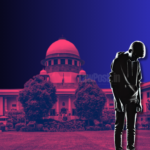The Supreme Court, while denying bail to a man accused of being involved in a narcotics syndicate, issued a strong message to India’s youth, urging them to stay away from illicit drugs and resist the pressure of considering drug use as a ‘cool’ or fashionable lifestyle. The case at hand involved the smuggling of 500 kilograms of heroin from Pakistan, and the Court took the opportunity to emphasize the gravity of the growing drug abuse problem in the country.
A Bench led by Justice BV Nagarathna and Justice N Kotiswar Singh addressed the issue of drug use while considering the case. The Court described drug abuse as a significant societal concern and called for immediate and effective intervention strategies by the States to protect the younger population.
In its judgment, the Court directly appealed to young people, highlighting the dangerous allure of drugs often seen in popular culture. “For youngsters just beginning to explore the world, the consumption of drugs in popular culture has propelled the cultural push towards a dangerous lifestyle, one that incorrigibly applauds drugs use as ‘cool’ and a fashionable display of camaraderie,” the Court observed, urging them to resist peer pressure. “We implore the youth to take charge of their decisional autonomy and firmly resist peer pressure and desist from emulation of certain personalities who may be indulging in drugs,” it added.
The Court acknowledged that drug use often stems from emotional distress, academic stress, or peer pressure, particularly among vulnerable children. It urged a shift in the societal approach, saying, “The unfortunate reality is that victims of substance abuse are not limited to the unfortunate ones who have fallen prey to it but also include their family and peers.” The Court emphasized that the focus should be on rehabilitation, not demonization.
Justice Nagarathna, who authored the judgment, also stressed the important role parents play in preventing drug abuse, especially among adolescents. “Affectionate and friendly conversations between parents and children and a continuous assessment of the direction in which a child is proceeding is a duty which each parent must undertake,” she noted.
Further, the Court urged local communities to collaborate with NGOs and law enforcement agencies to raise awareness about drug abuse, particularly in schools and youth centers. It also recommended that schools and colleges incorporate drug abuse prevention in their curriculum, addressing both the physical and emotional consequences of addiction.
The Court concluded that tackling drug addiction among adolescents requires a joint effort from multiple stakeholders, emphasizing that the pervasive drug trade must not be allowed to undermine the potential of India’s youth. “The arc and web of drug trade cannot be permitted to corrode the shine of the youth of India,” the Court said.
Case: Ankush Vipan Kapoor vs National Investigation Agency – Available on LAWFYI.IO








